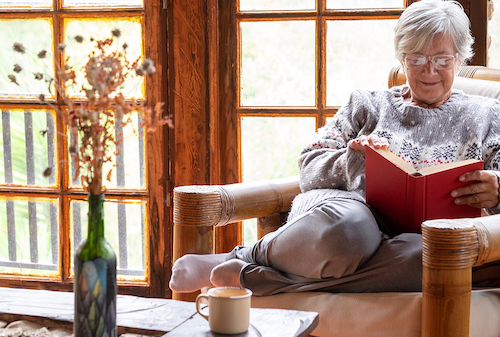 Having low levels of stress and a four year college degree are strongly associated with psychological resilience in women 80 and over.
Having low levels of stress and a four year college degree are strongly associated with psychological resilience in women 80 and over.
Researchers from The Ohio State University found that stronger social support and higher levels of self-rated health were also helpful in building resilience.
“We found no differences in resilience scores by race and ethnicity. We did find that higher education and lower perceived stress were associated with higher resilience across race, ethnicity, and neighborhood socioeconomic status among women aged 80 plus,” Jessica Krok-Schoen, PhD, assistant professor in health sciences at The Ohio State University told Theravive.
“I was inspired by the oldest-old group (80+) being the fastest growing segment of the US population. I was also inspired because the older adult population is increasingly diverse in terms of members of racial and ethnic minority groups. Lastly, little research has been done on this interesting population.”
The researchers examined data from the Women’s Health Initiative to investigate what factors helped women bounce back from set backs.
The average age of the women was 84.
91.4% of the women were white, 3.7% were black, 1.9% were Hispanic and 1.7% were Asian.
Initially, the researchers sought to examine how race, neighborhood, ethnicity and socioeconomic status impacted the resilience of women, but they found other factors were also influential.
They measured the resilience of the women based on the level at which they agreed or disagreed with three statements. These included phrases about how quickly they bounced back after difficult times, whether it took them long to get over a stressful event and a statement about whether they found it difficult to make it through events that were hard.
These resilience scores were then analysed against a number of variables including demographics, engagement in activities of daily living, depression, stress, significant life events, social support, spirituality, major illness, diet and lifestyle.
They found the overall resilience score was 3.96 out of 5.
The main factors associated with strong psychological resilience included higher education, lower levels of perceived stress and higher social support.
“Social support was associated with resilience for the vast majority of our sample. Previous research has shown that social support is exceptionally important for maintaining good physical and mental health. Your social network can support and also hinder your resilience. It's not about the number of people in your social network but the quality of those relationships,” Krok-Schoen said.
Having fewer physical symptoms and higher self-rated health had major correlation with higher levels of resilience.
An increased likelihood of having depression had a significant association to lower resilience for the majority of the older women.
Some of the factors that were consistently associated with higher resilience were only found among women who lived in neighborhoods with moderate socioeconomic conditions. These factors included living alone and spirituality.
Nearly half of the women lived in such neighborhoods.
The researchers found that experiencing significant life events had no correlation with resilience. This included events like losing a job, death of a loved one, major disasters or accidents and abuse.
Krok-Shoen says understanding how older women feel about their own resilience is important and could help develop helpful interventions that might encourage social support and help older women manage stress.
“It matters because it's (resilience) an attribute that can help individuals adapt to life stressors. In the general population, it's associated with mental, physical, and social health. Prior to this study, we did not know what factors were associated with higher and lower resilience in this population,” she told Theravive.
“Older age is not all deficits. Research regularly identifies gains in psychological well-being and wisdom among older adults. In short, older adults have a lifetime of experience and may tend to not "sweat the small stuff". Resilience does not protect older adults from feeling stressed but helps them cope with stress more satisfactorily. Multiple factors (demographic, physical, mental, and social) are associated with resilience. Despite some different associations of resilience by race, ethnicity, and neighborhood socioeconomic status, there were many more similarities.”
Elizabeth Pratt is a medical journalist and producer. Her work has appeared on Healthline, The Huffington Post, Fox News, The Australian Broadcasting Corporation, The Sydney Morning Herald, News.com.au, Escape, The Cusp and Skyscanner. You can read more of her articles here. Or learn more about Elizabeth and contact her via her LinkedIn and Twitter profiles.